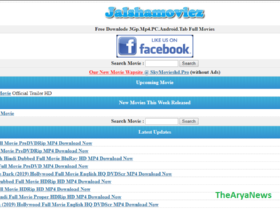Forums and Q&A platforms are reliable places to earn relevant, steady backlinks without resorting to spam. Real users ask real questions, and clear, helpful answers can live for years—collecting views, shares, and citations. When you lead with value, your links become natural references, your brand is seen as helpful (not pushy), and your content gets discovered by the exact audience you want. This guide breaks the process into simple steps you can repeat every week.
Why Forum and Q&A Links Still Matter
Many marketers assume forum links are weak because they’re often nofollow. That’s only part of the story. Nofollow links drive targeted referral traffic, strengthen topical relevance, and start conversations that lead to followed links later—from blogs, newsletters, and documentation pages that reference your answer. Treat every post as a durable resource and your results compound.
Key advantages to keep in mind (and use to guide your approach):
- Topical alignment builds trust over time — Threads are grouped by niche; when your answer solves a specific problem inside the right category, you create consistent relevance signals that search engines and readers both recognize.
- Answers become “evergreen finds” — Good solutions rank in on-site searches, appear in Google results for niche queries, and continue attracting readers months later, turning a single post into a long-term traffic lane.
- Authority grows from consistency — As your profile accumulates helpful, well-structured responses, moderators and power users begin to cite your resources, recommend your content, and welcome relevant links.
Choose the Right Platforms First
Picking the right communities prevents wasted effort. Your ideal forum or Q&A site is active, policed for quality, and already shows up in search for the topics you care about. Start narrow: two or three high-fit communities are better than a dozen random ones.
How to shortlist platforms without overthinking it:
- Verify active demand before you join — Search the site for your core problems (e.g., “schema errors,” “email warmup,” “GA4 events”) and check thread freshness, replies, and views so you know people are listening.
- Confirm search visibility outside the platform — Google a few target questions and see if the forum’s threads appear; external visibility means your answer can earn ongoing traffic beyond logged-in members.
- Read the linking rules early — Each community treats links differently; understand when contextual links are allowed, when signatures are acceptable, and what moderators flag as promotional so you don’t burn trust on day one.
Build a Trustworthy Profile
Your profile is your handshake. A complete, transparent profile makes your future links feel appropriate instead of salesy. Keep it simple and value-focused so anyone can understand who you help at a glance.
Elements to set up before your first post:
- Clear identity and concise bio — Use a real name or consistent brand handle plus a one-sentence statement like “I help small teams automate reporting without breaking analytics.” This frames your expertise without hype.
- Neutral visuals and one destination — Add a clean headshot or brand mark and one primary, educational destination (knowledge hub, docs, or starter guide). Avoid splashy sales pages; you’re building trust first.
- Consistency across platforms — Mirror this profile on two or three communities you plan to grow in so members recognize you and feel comfortable engaging with your answers.
Research Questions Strategically
You don’t have to answer everything. Focus on questions where your experience translates into repeatable steps, templates, or a quick framework. This is how your answers get bookmarked, shared, and referenced by others.
A simple way to find high-leverage threads quickly:
- Use search operators to surface winners — Try queries like
site:forum.example.com “your topic”or“your topic” + “how to”and sort by views or “unanswered” to locate threads with demand and low competition. - Blend recency with evergreen value — Prioritize recent threads that also cover timeless patterns (setup, troubleshooting, best practices). These earn views now and keep performing for months.
- Validate indexability before you invest — If you’ll pour time into a deep answer, make sure the thread can be discovered in search. When in doubt, confirm crawlability and coverage using a dedicated page index checking tool so your effort isn’t hidden.
Structure Answers That Earn Links (Without Looking Promotional)
Great forum answers are complete even without a link. The link should extend the solution—offering the template, full checklist, or longer walkthrough for readers who want more. This keeps moderators happy and readers grateful.
Use this dependable, reader-first format every time:
- Restate the problem in plain words — Open with one tight sentence that mirrors the question so the asker feels understood and skimmers instantly know they’re in the right place.
- Give numbered steps anyone can follow — Outline the method from start to finish, avoiding jargon and assumptions. Short sub-steps make it easy for beginners and reduce back-and-forth.
- Include a small example or snippet — A mini example (a formula, JSON snippet, checklist block) turns theory into a copy-paste starting point, which is what most readers want.
- Link once to a deeper resource — Add a single contextual link to the full guide, template, or case study that maps to your steps. Keep the anchor descriptive and neutral so it reads as a reference, not an ad.
Where (and When) to Place Links Safely
Link placement is less about “how many” and more about “how relevant.” One genuinely helpful link beats a handful of vague ones. Respect the house rules and you’ll keep your account (and domain) welcome.
Practical placement choices that moderators support:
- In-post contextual references — If your answer relies on a longer checklist or documented fix, link the phrase that names the asset (e.g., “GA4 migration checklist”) so readers know exactly what they’ll get.
- Profile or signature links as a safety net — Some forums limit in-post linking; in those spaces, a neutral, evergreen signature pointing to your resource hub provides visibility without interrupting the conversation.
- Contribution threads and roundups — Many communities run “best resources” threads. Add your link only after you’ve contributed value elsewhere so it lands as a community service, not a self-promo.
Build a Small Resource Hub People Actually Want
Forum answers work best when you can offer a supporting asset that saves time. Create a tiny library—two to four pieces is enough—designed specifically for the questions you keep seeing. Each asset should be educational, scannable, and updated.
Resource types that consistently earn citations:
- Checklists and SOPs with acceptance criteria — Turn your steps into a single page readers can follow during implementation; this is the perfect page to reference from answers and receives natural shares.
- Templates, calculators, and quick starters — Practical tools (CSV templates, Sheets calculators, workflow maps) make your post more useful and encourage voluntary linking from blogs and docs.
- Beginner-friendly visual guides — Annotated screenshots and short clips reduce confusion and create “aha” moments; communities often pin or star these for future readers.
If you plan to complement community activity with editorial placements, a trusted guest posting platform can help you secure relevant, educational articles while your forum presence builds organically.
Track What’s Working and Improve Fast
You can’t scale what you can’t see. Set up simple tracking to learn which answers drive clicks, which communities welcome links, and which resources deserve upgrades. Small insights compound quickly.
Lightweight measurement you can run in an afternoon:
- Monitor new links and referring domains — Use a reliable backlink checker tool to see when answers lead to third-party citations (e.g., someone’s blog quoting your steps and linking back).
- Check index status for threads and assets — If a high-effort post isn’t sending traffic, confirm Google actually indexed the thread and your resource with a page index checking tool before you tweak content.
- Watch referral traffic and engagement — In analytics, group forum sources to see which platforms send time-on-page and conversions, then prioritize those communities in your weekly plan.
Weekly Workflow You Can Sustain
Consistency beats volume. A short, focused routine keeps your quality high and your account in good standing, while still moving the needle on links and visibility each week.
A 90–120 minute cadence that compounds results:
- Prospect 10–15 threads with intent fit — Skim for questions you can answer thoroughly, not just quickly; note view counts and last activity so you don’t revive dead posts without reason.
- Publish 3–5 complete, step-by-step answers — Stick to the structure, keep anchors descriptive, and include one contextual reference when it genuinely helps readers implement faster.
- Log outcomes and iterate — Track clicks, replies, and upvotes. If a pattern emerges (e.g., templates outperform tutorials), produce more of what the community is signaling it wants.
For deeper guidance on structuring educational content that communities appreciate, the guest posting blog shares practical frameworks you can adapt to your own resource hub.
Advanced Tips for Earning Natural Mentions
Once you’re comfortable, add small upgrades that make your answers reference-worthy. The goal isn’t to “drop more links,” but to create answers other writers want to cite because they’re the clearest explanation available.
Low-effort enhancements with outsized payoff:
- Bundle your best answers into an “answer pack” — Consolidate recurring fixes into a single, maintained page and cite it once; bloggers prefer linking to comprehensive, up-to-date resources.
- Add lightweight visuals — Decision trees, flow maps, or annotated screenshots reduce ambiguity and are frequently embedded by others who credit you.
- Reference third-party sources when helpful — Being unbiased (and linking outward occasionally) increases credibility, which leads to more tolerance for your own references later.
If you want ongoing ideas for measurement and link evaluation, the backlink analysis blog breaks down workflows that fit neatly with forum-based link building.
Common Mistakes (and the Better Alternative)
It’s easy to overdo it in communities. The surest way to protect your reputation is to hold your answer quality one notch above what most users post, and to let the link play a supporting role.
Avoid these pitfalls to stay welcome everywhere:
- Dropping a link without a solution — Fix it by writing a complete, step-by-step answer first; then add a single, clearly relevant reference that maps to your steps.
- Using sales pages as destinations — Fix it by linking to how-tos, templates, or docs. Save sales pages for profiles or permitted “tool recommendation” threads.
- Over-optimizing anchors — Fix it by using natural, descriptive phrases that tell readers exactly what they’ll find on click, rather than keyword-stuffed labels.
- Copy-pasting the same reply everywhere — Fix it by tailoring examples and steps to the asker’s stack (CMS, data source, audience), which also boosts upvotes and citations.
For technical visibility housekeeping—so your resource pages remain easy to discover—the indexing insights blog offers practical tips on crawlability and coverage you can apply during quarterly updates.
FAQs
Are forum links valuable if they’re nofollow?
Yes. They drive qualified referral traffic, improve topical signals, and often spark followed links later when bloggers or documentation writers cite your answer. Treat them as discovery channels that feed durable SEO assets.
How many links should I include per answer?
One contextual reference is usually enough. If the thread truly needs more (e.g., a definitions page and a checklist), add a second—always within the rules and only when it strengthens the solution.
What should I link to most often?
Educational resources: checklists, templates, documented fixes, and compact guides. These earn appreciation in communities and attract organic citations elsewhere.
How fast will I see results?
Referral clicks can start the same day on active threads. New third-party citations typically follow over weeks as readers implement your steps and reference your resource in their content.
Can I scale this without burning out?
Yes—own two or three platforms, batch outlines for recurring questions, and refresh your top resources quarterly. Quality and consistency beat raw volume.
Conclusion
Forum and Q&A link building works when you put readers first. Choose a small set of high-fit communities, publish complete answers that stand on their own, and include a single, descriptive reference only when it genuinely helps. Build a compact resource hub tailored to the questions you see, measure what performs, and iterate. Over time, your profile earns trust, your resources get cited beyond the forums, and your backlink profile becomes stronger and safer—powered by help, not hype.














